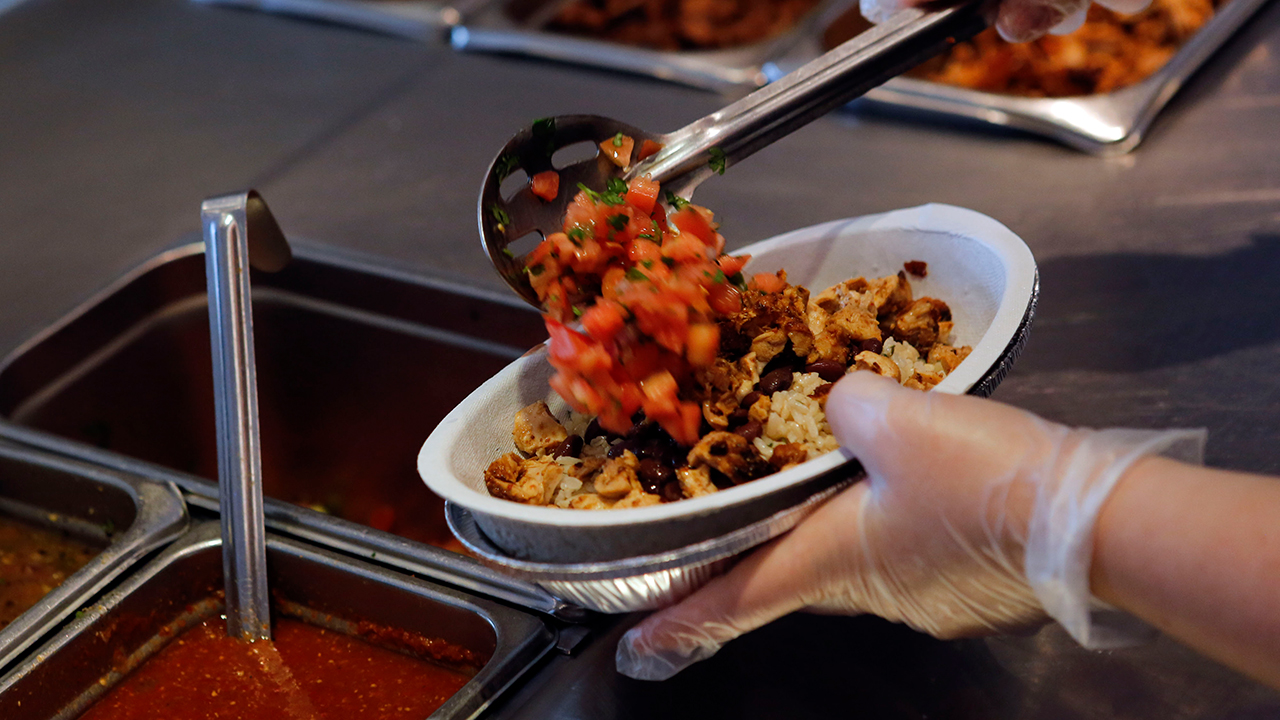A Chipotle shareholder is suing the company, claiming they faced “significant losses” due to the alleged portion-size reductions that caused a frenzy over social media.
On Monday, a proposed class-action lawsuit was filed on behalf of Micheal Stradford, who claimed that the company had “understated how difficult it would be to compete” within the highly competitive industry as it “provided customers with highly inconsistent (and in the view of some customers, lacking) portion sizes.”
“If guests do not agree with the overall value proposition of our menu, our sales could be adversely affected, which would negatively impact our results of operations,” the suit stated.
Former CEO Brian Niccol, who stepped down in August to take over at Starbucks, and former CFO Jack Hartung are named as defendants in the lawsuit.
CHIPOTLE CEO ADDRESSES BURRITO BOWL PORTION SIZES AFTER BACKLASH
The suit argued that customer dissatisfaction had not been made clear until this past spring, when people “began to air grievances on social media about portion sizes at Chipotle restaurants being inconsistent or lacking.”
FOX Business reached out to Micheal Stradford’s attorney, Laurence Rosen, for comment.
Laurie Schalow, Chipotle’s chief corporate affairs officer, told FOX Business that the company doesn’t comment on litigation but “will vigorously defend our industry-leading real food.”
Many social media users – frustrated with the increasingly smaller portions – began sharing videos of workers assembling their Chipotle bowls as they repeatedly requested additional toppings. But the lawsuit said that “things took a turn when massively influential food reviewer Keith Lee echoed those laments” in May.
CHIPOTLE CEO ADDRESSES BURRITO BOWL PORTION SIZES AFTER BACKLASH
The lawsuit said that Lee is someone who “wields considerable influence,” boasting millions of followers on TikTok alone.
In July, Niccol acknowledged during an earnings call that “that portion inconsistency was an issue” and “caused customers to feel justifiably unhappy with the company,” the suit continued.
In an effort to turn things around, he said the company “leaned in and reemphasized generous portions” across all of its restaurants, the suit stated. Niccol revealed that the company’s cost of sales would be impacted by higher protein costs. The stock fell on the news, according to court documents.
During an earnings call last month, interim CEO Scott Boatwright told analysts that people are “posting big burritos, big bowls and really excited about portioning they’re getting in the Chipotle brand,” which was a “reverse of what we saw earlier in the year.”
GET FOX BUSINESS ON THE GO BY CLICKING HERE
But the company’s CFO, Adam Rymer, told analysts that the move had taken a toll on its profitability.
Rymer said the company had a higher usage of ingredients in the prior quarter due to its focus on “ensuring consistent and generous portions” and faced higher costs for several items, most notably avocados and dairy.
The lawsuit stated that the price of Chipotle shares had fallen on the news.
The complaint claims that Niccol and Hartung’s “wrongful acts and omissions, and the precipitous decline in the market value of the company’s common shares, “caused shareholders to suffer “significant losses and damages.”
